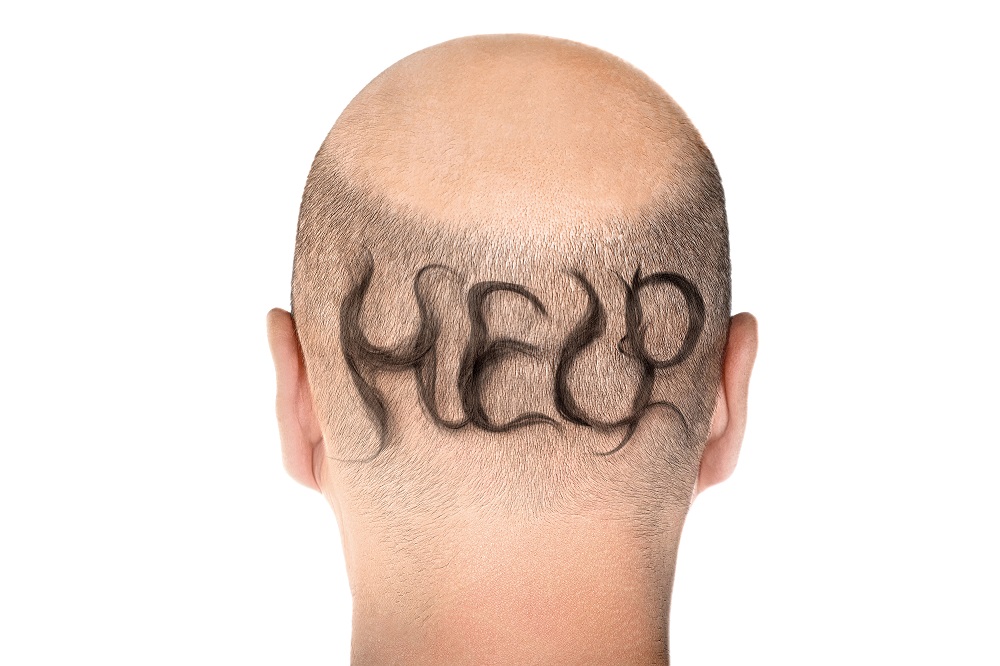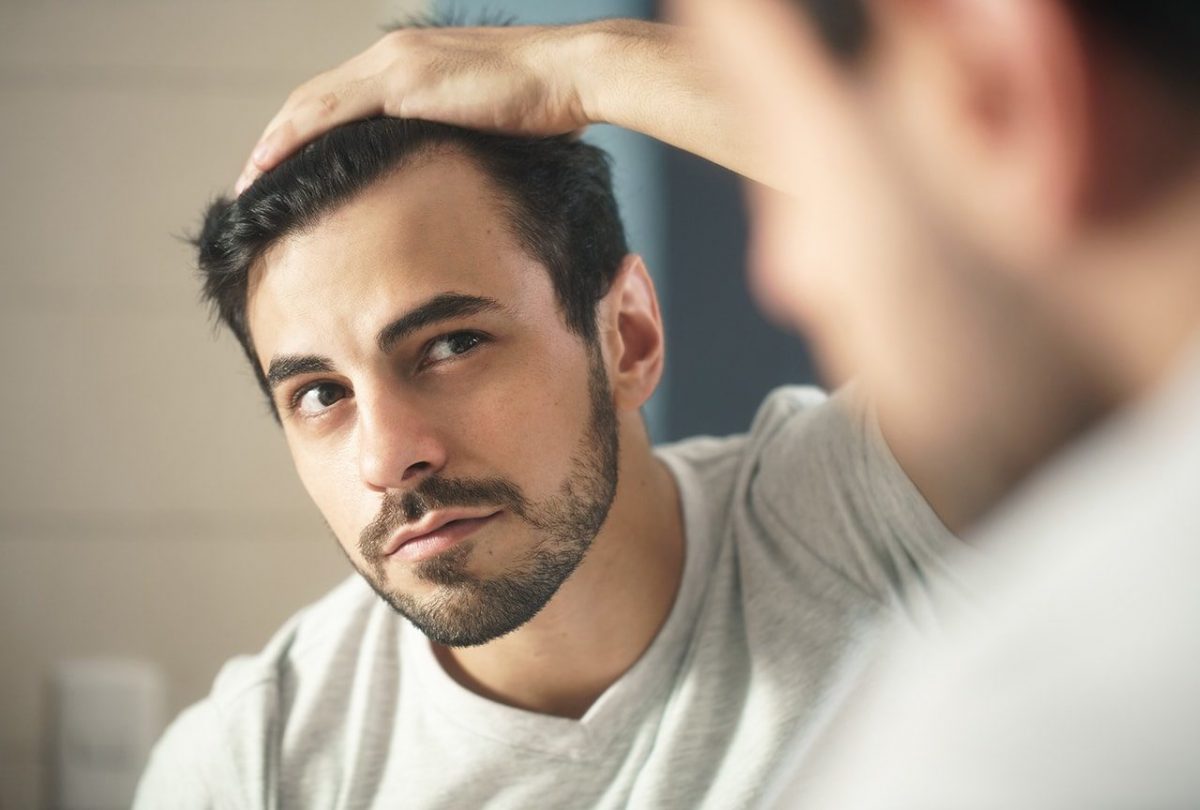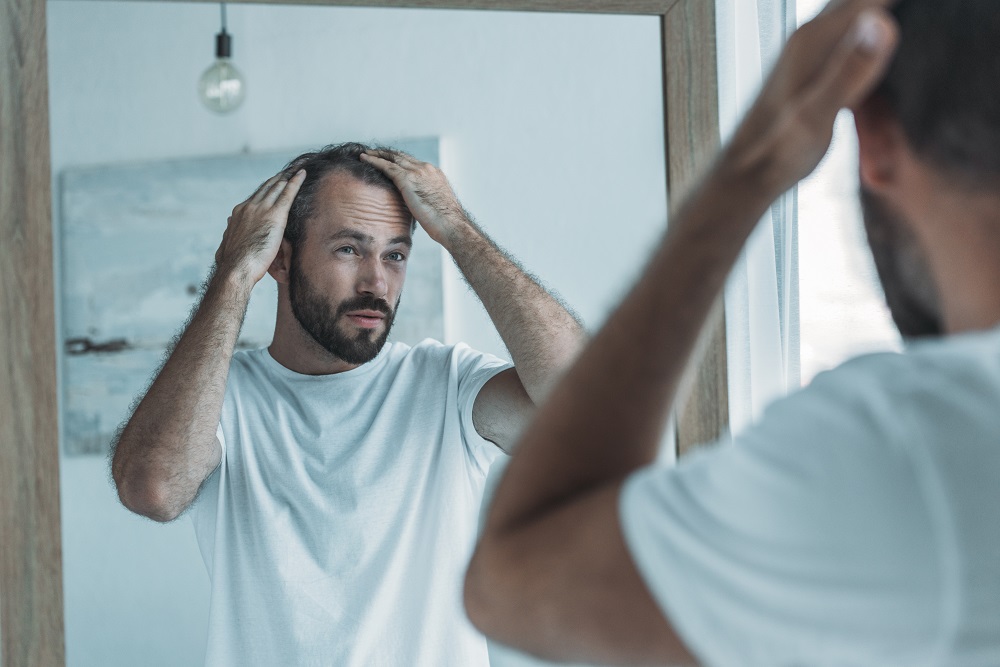Answering the Most Common Questions About Men’s Hair Loss
Did you know that nearly all men will experience some form of hair loss in their lifetime? While some people may only see a gradual thinning of their hair, others will go completely bald. The extent to which you experience hair loss is largely determined by genetics and family history.
But even though losing your hair is something that almost everyone goes through at some point, there is still a significant deal of confusion about the topic of men’s hair loss. That’s why we’ve written this quick blog post to answer some of the most common questions about the subject.
In this post, we will discuss the contributing factors of men’s hair loss and provide an overview of the professional resources you can seek out to discuss your hair loss concerns. Read on to learn the answers to your most burning questions about men’s hair loss and male-pattern baldness.
What is men’s hair loss?
Hair loss is extremely common among men as they get older, with a majority of males experiencing some form of it as they age. The most common type of hair loss is male-pattern baldness, in which men lose their hair in a predictable pattern. It’s also known as androgenetic alopecia.
This type of hair loss generally begins at the temples and spreads to involve the crown of the head as well. While male-pattern baldness can start early on in life, it is more prevalent as men get older. Approximately one in five men in their 20s will experience it, with the numbers increasing to one in three men in their 30s and almost half of men in their 40s.
In addition to male-pattern baldness, there are also a number of other conditions that can cause men to lose their hair, including medical issues, stress and other disorders.
What are the contributing factors of men’s hair loss?
With male-pattern baldness, the most common form of men’s hair loss, genetics is the main factor at play. This means that some men are more likely to see their hair get thinner or fall out if it runs in their family. While it’s not guaranteed that you’ll go bald just because your relatives have, having this type of family history increases your chances of experiencing hair loss.
But what exactly causes your hair to fall out? Men’s hair loss is linked to a sex hormone called Dihydrotestosterone (DHT), which flows through the bloodstream and attaches itself to hair follicle receptors. Once the DHT binds to the receptors, it becomes more difficult for hair to grow.
You may have heard that wearing a hat every day or swimming in pools frequently can contribute to hair loss, but this isn’t entirely true. These behaviours alone won’t cause your hair to fall out, but they may be indirectly correlated with hair loss.
There are also other medical disorders that cause hair loss which is unrelated to male-pattern baldness. For example, people with anaemia, ringworm or thyroid issues may lose their hair. In most of these cases, the hair loss is temporary, and hair will regrow when the conditions are appropriately treated.
Is hair loss preventable?
Unfortunately, since male-pattern baldness is determined by your genetics, you don’t have control over whether or not you are genetically predisposed to this type of hair loss. However, experts say that living a healthy lifestyle can contribute to an overall more robust head of hair. That means exercising, eating a well-balanced diet and consuming enough essential vitamins and minerals.
If you want to keep a full head of hair, you need to be actively looking for indications of hair loss so that you can stop it quickly. Acting fast will allow you to hold on to the hair you have left and prevent future hair loss. As soon as you notice that your hair is thinning or falling out, get in touch with a professional medical team who can assess your specific situation and devise a personalised hair loss treatment plan for you.
How can you treat men’s hair loss?
Today, there are a number of effective methods to go about treating hair loss. However, it’s important to note that there is no miracle cure, and any type of treatment that you pursue should be discussed with a medical professional beforehand.
In terms of do-it-yourself treatments, you will find a variety of options available online or at your local pharmacy. These include creams and pills that are designed to prevent hair loss or stimulate hair regrowth. You can also wear hats and hairpieces as a more temporary solution.
In more severe cases of hair loss, some people will opt for hair transplant surgery. This type of treatment has become significantly more popular in the past several years. In fact, according to the International Society of Hair Restoration Surgery, surgical hair restoration procedures increased by 60% since 2014.
Seeking medical help for hair loss is helpful not only for improving your appearance but also for boosting your mental health. That’s because losing your hair can be challenging to deal with, especially if it starts falling out at a young age. Many men experience shame and embarrassment as a result of male-pattern baldness, even though it is a common condition.
Men’s Health Direct is an online medical clinic that specialises in treating men’s health issues, including erectile dysfunction, hair loss and premature ejaculation. We offer a confidential and professional service for men to address their most personal health concerns from the comfort of home.
At Men’s Health Direct, we recognise that it can be difficult to discuss specific health concerns. We aim to make it easy and comfortable for you to access medical support without fear of judgment or critique. Get in touch soon with our team of experts to learn more about how you can benefit from working with Men’s Health Direct. You can call us on 1800 200 500 or email us on info@menshealthdirect.com.au. Alternatively, you can also fill out an online assessment for our Australian-registered medical staff to review before speaking with you.



